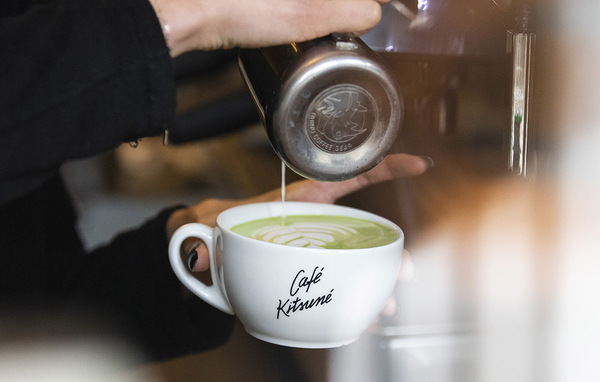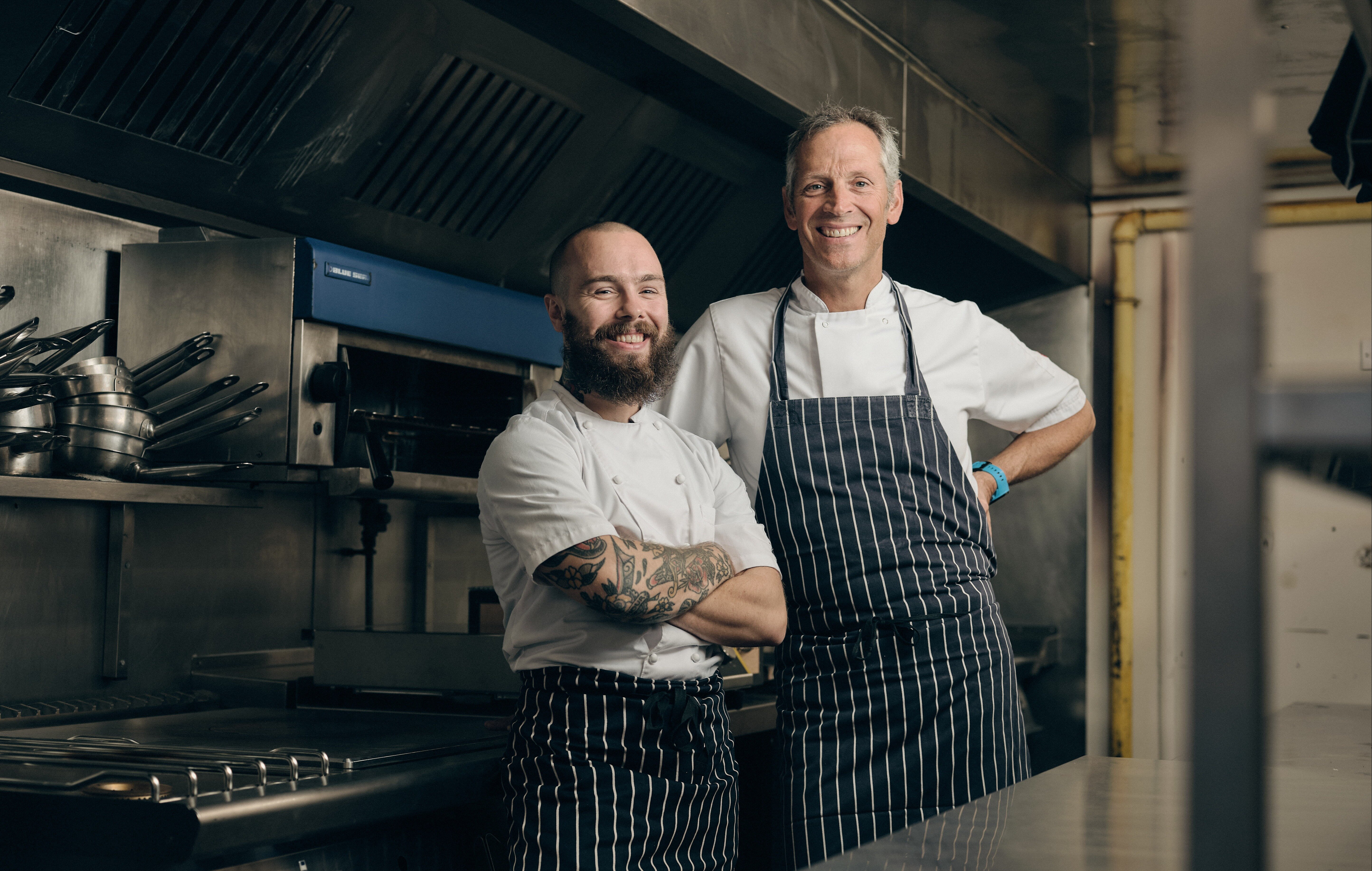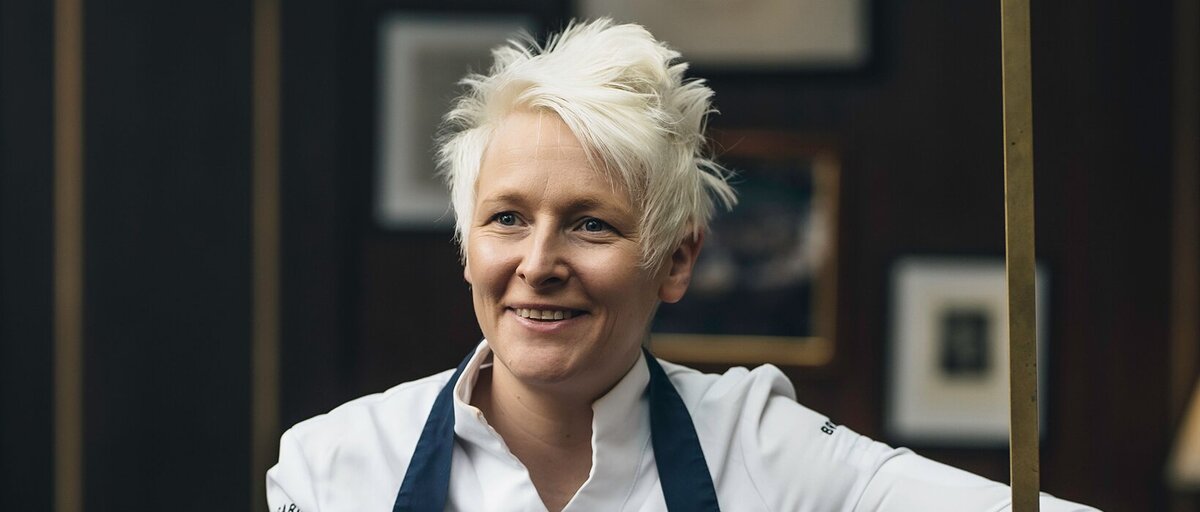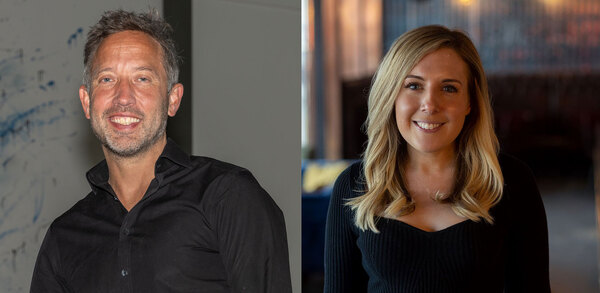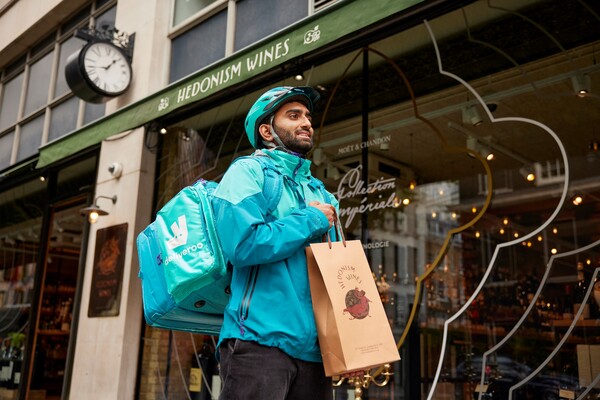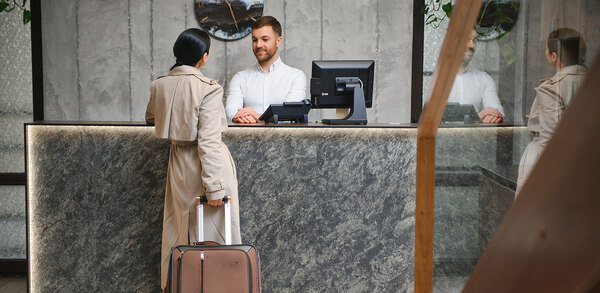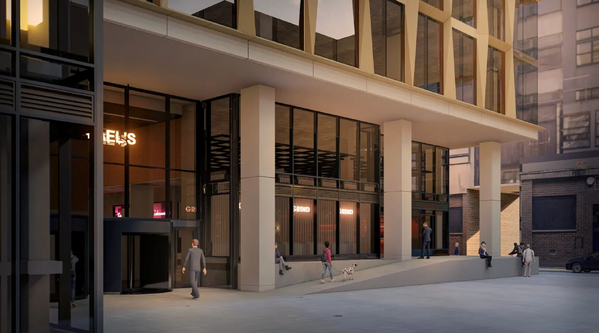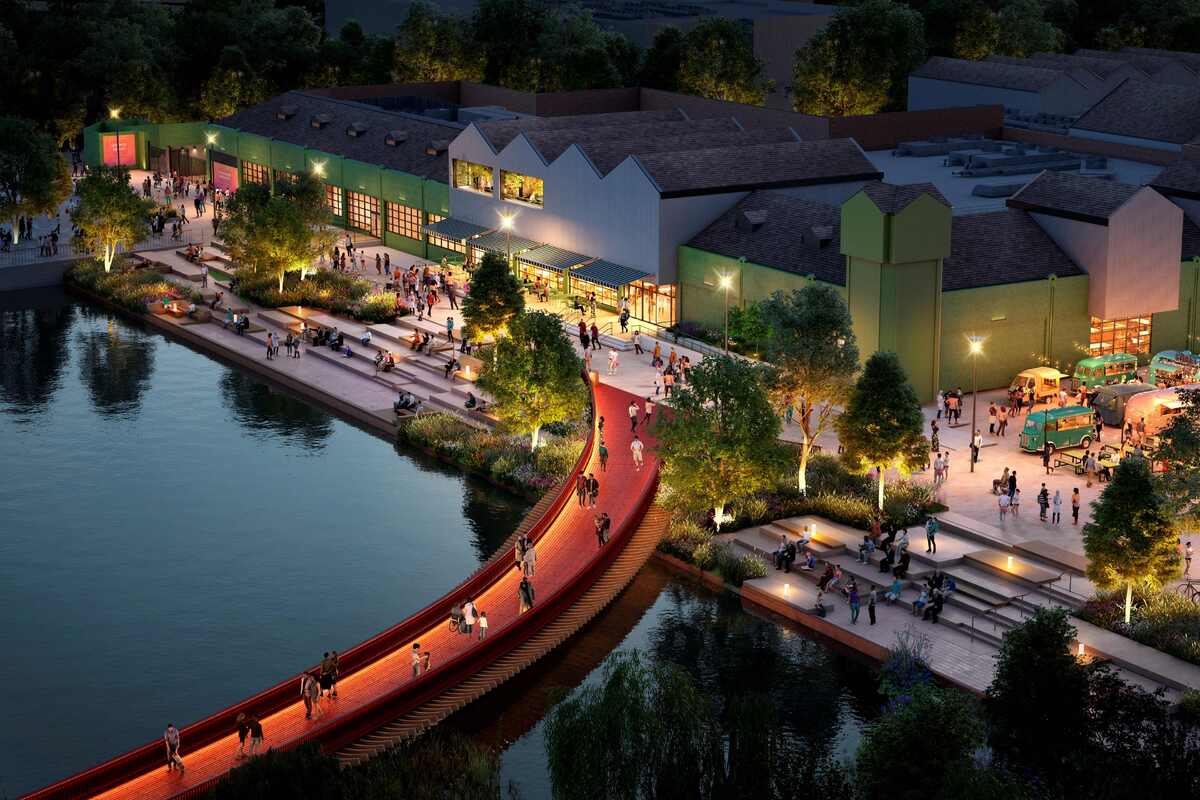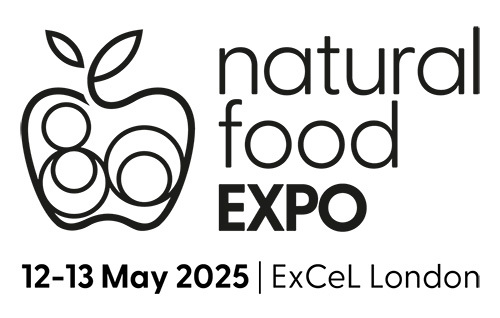Phil Howard on reimagining Sonny's Kitchen as Church Road restaurant
Phil Howard has reimagined Sonny’s Kitchen, 33 years after its original opening as Church Road restaurant. Andy Lynes checks it out
Church Road restaurant in the leafy southwest London district of Barnes is a busy building site when I visit on a beautiful Indian summer morning in early September.
There is wet paint, trailing electrical cables and countless tradesmen to navigate as Phil Howard, dressed in chef’s whites and a blue apron, takes me on a tour. He explains how the space that was Sonny’s is being reimagined with the help of Nelson Design, which has long been associated with Howard-related projects, including the Ledbury and Elystan Street.
There will be a new bar area at the front where customers, who may be heading to the upmarket Olympic Cinema opposite the restaurant, can stop for a cocktail and a selection of ‘small/bigger/big’ plates that will include deep-fried squid with sriracha mayo and lime zest. Howard says the bar menu is mostly a “clever plundering” of the à la carte, so that a clam and chorizo crumpet, which accompanies a starter of sweetcorn and clam chowder, also appears by itself as a snack.
What was Sonny’s shop and café will now house a private dining room seating 16. It will also function at lunchtimes as the Common Room, a communal table with its own menu, and also as a cookery demo area at weekends. “Barnes is a community,” says Howard, who lives 200 metres from the restaurant’s door. “We genuinely want to be somewhere that feels part of the community.”
A new 60-cover dining room (“We’ve lost a few seats because the front area was also dining, but gone are the days in London when you can assume you’re going to fill 100 covers,” says Howard) will boast “1950s glamour”, including aubergine-coloured leather chairs and linen-covered tables. Back of house there is a large ground-floor kitchen with natural light and its own entrance, and a basement with room for a staff changing area, walk-in fridges, an office and a wine cellar.
“We want to make it into a nice staff area. If it all works and we make some money, we’ll put a pool table down there and loads of sofas. It’s a big part of what you want to do these days – staff retention is a massive thing,” says Howard.
A harmonious partnership The opening of the restaurant roughly coincides with the 10th anniversary of Howard’s business partnership with Rebecca Mascarenhas. The pair opened Kitchen W8 in South Kensington in 2009, rebranded Sonny’s as Sonny’s Kitchen in 2012 and launched Elystan Street in 2016. “That is an absolutely the key part of my world, having a great partner. A great partner who takes care of an awful lot of shit that, frankly, I don’t really want to get involved with. I know the business of restaurants. Rebecca and I are a great team, and it just makes sense in my book to have somebody who completes the whole.”
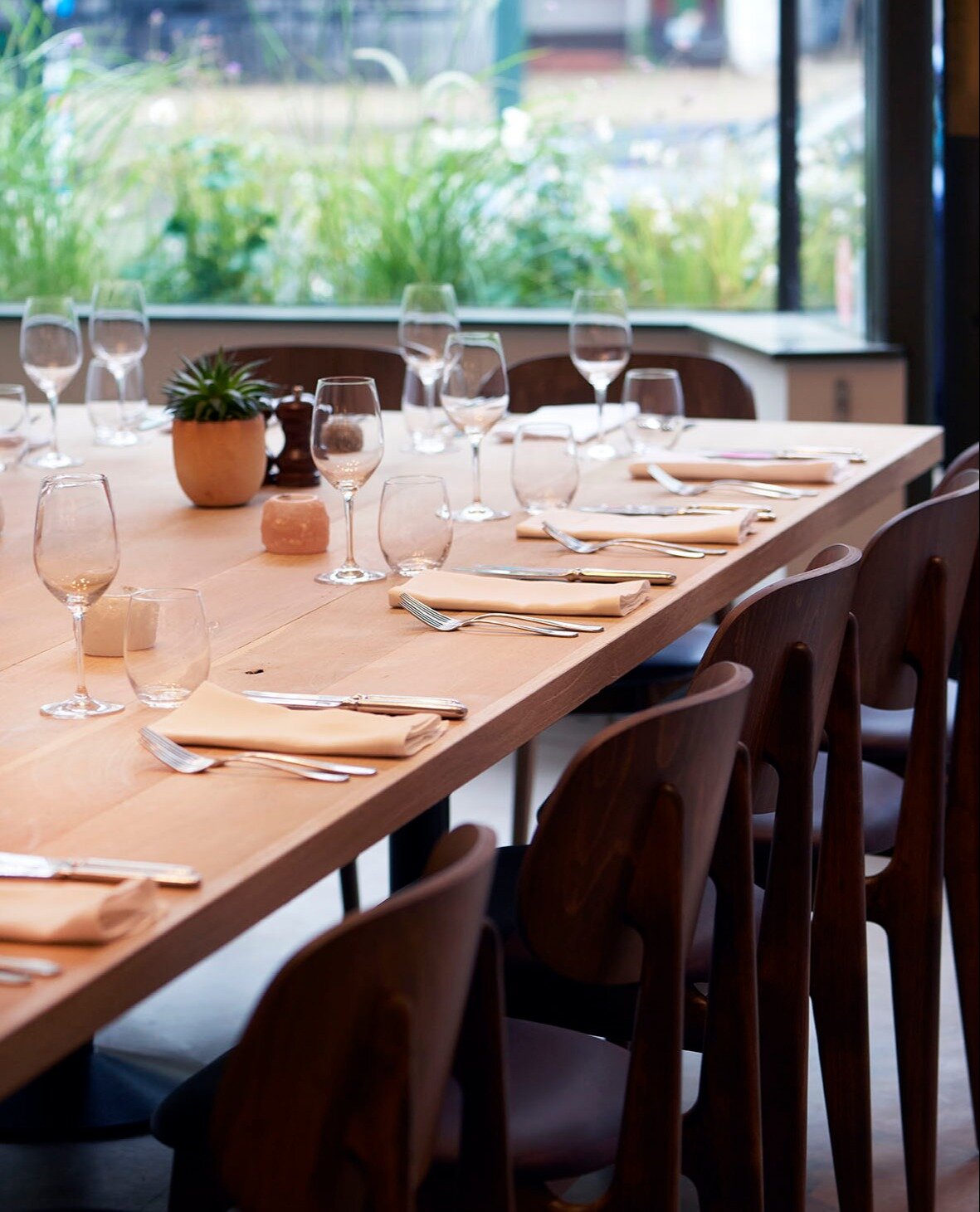
Although Howard says he was only involved in Sonny’s for a “fraction” of its 33-year lifespan (Mascarenhas was the owner from day one) he says its closure is “really sad”. “Given the rate at which change has happened in the world of restaurants in the span of that 33 years, it’s extraordinary that anything can actually continue to do well for such a long period of time. But I think it was just running out of steam. Competition has increased significantly within Barnes, and I think we’ve come to understand more what our strengths are. What is the point is that we, as a partnership, Rebecca and I, like to bat, and Sonny’s was not quite that.”
In place of Sonny’s Kitchen’s broad, globetrotting menu, that included everything from ribs and pizza to rump of lamb with imam bayildi and calves’ kidneys with creamed onion and sage, is a more concise list that includes carpaccio of sea bass with olive oil, orange, chilli, spring onion and herbs, and roast grouse with roasted pear, elderberries, hasselback potatoes and gravy. They’re dishes that wouldn’t look out of place at Elystan Street, which is not surprising when you learn that head chef Sam Astley-Dean was sous chef there (Alan Parry has also moved across from his position as assistant general manager to head up front of house at Church Road).
“Our aim at Church Road is to be rigorously seasonal, which means that the produce will always taste just as it should when it’s in season,” says Astley-Dean. “We’ll be using a range of small suppliers that we know well from relationships that Phil and I have built up over the years, including HG Walter, an exceptional family-run London based butcher, Lake District Farmers and Flying Fish, based in Cornwall, for sustainable, line-caught day-boat fish.”
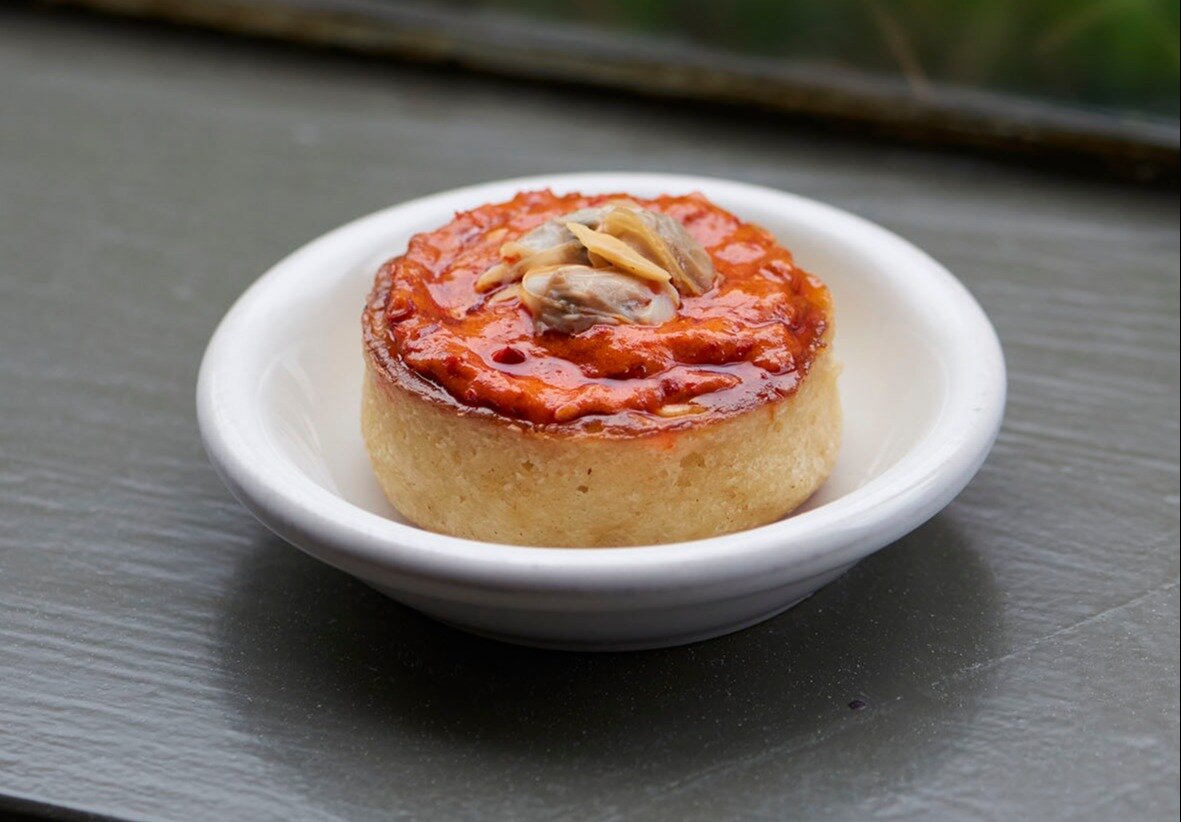
Howard says it’s more important that Church Road’s launch menu includes dishes that will help make a statement about what the restaurant is about: whether it’s the best menu overall or not, or the food is the most delicious, is a separate issue, he explains.
“Sonny’s changed over the years; we’ve done this, we’ve done that, and I think people were getting a bit confused about exactly what we were trying to do. So now, we’re sort of trying to set out our store.
“I would say the menu wants to show that we’ve got ambition and ability, and we’ve got real-life chefs out the back. I think when you read sweetcorn and clam chowder with a clam and chorizo crumpet – that’s comfort food. There’s nothing fancy about it, but it’s creative; it’s contemporary. Think of carpaccio of sea bass – there’s nothing new about it, but it’s delicious and clean. There will always be that kind of a dish on there.”
Thinking green
As at Elystan Street, the overarching ethos at Church Road is what Howard calls “treading lightly on the planet”, a sustainable approach to both cooking and restaurateuring that he says has come about as a natural consequence of getting older.
“You just become more aware and you care more. In the three years in Elystan Street I’ve really come to feel what I enjoy about cooking and eating, and Church Road is a kind of tuning of that – simple, natural, seasonal, ingredient-led food that’s got a bit of craft in it. It’s been cooked with skill and some finesse, but ultimately it’s simple and delicious and I think very much aligned with where we are as a human race in relation to the planet. It really is vegetable-led on the whole.”
The opening menu at Church Road features just six meat-based dishes out of a total of 16 starters and main courses. “If we use a sea bass, it’s a line-caught sea bass. No amount of rod-and-line fishing is ever going to deplete the sea of fish. So because we can buy the best, we’re not part of the trawling problem.”
The considered purchasing policy extends to things like sourcing undersized pullet eggs and ‘ugly’ vegetables that would otherwise have been ploughed back into the soil or thrown away, the latter supplied by eco-entrepreneur Jess Latchford’s company Waste Knot, which have partnered with wholesale distributor Nature’s Choice (partly owned by Vernon Mascarenhas, Rebecca’s brother).
Howard will also be sourcing the tiger prawns for a stone fruit curry, served with spinach and flatbread (inspired by a recent visit to San Francisco) from FloGro Fresh, which farms the prawns in a solar-power-fuelled, closed-loop aquaculture system in inland Lincolnshire. But ‘treading lightly’ extends beyond ingredients.
“There’s so much more to do that is either demanding operationally, has cost implications or just requires effort to get it right. To really get rid of plastics in a restaurant is hard, but we’ve made massive progress. Sous vide bags tick every box except an environmental one, but now there are these new bags available that dissolve in sea water. They’re expensive, so I’ve taken a huge storage space and we’re going to buy gazillions of them so that we can negotiate a good price, and we will also cut down on the amount we use. We’re also going to invest in 10,000 lids between the restaurants rather than using clingfilm to cover everything.”
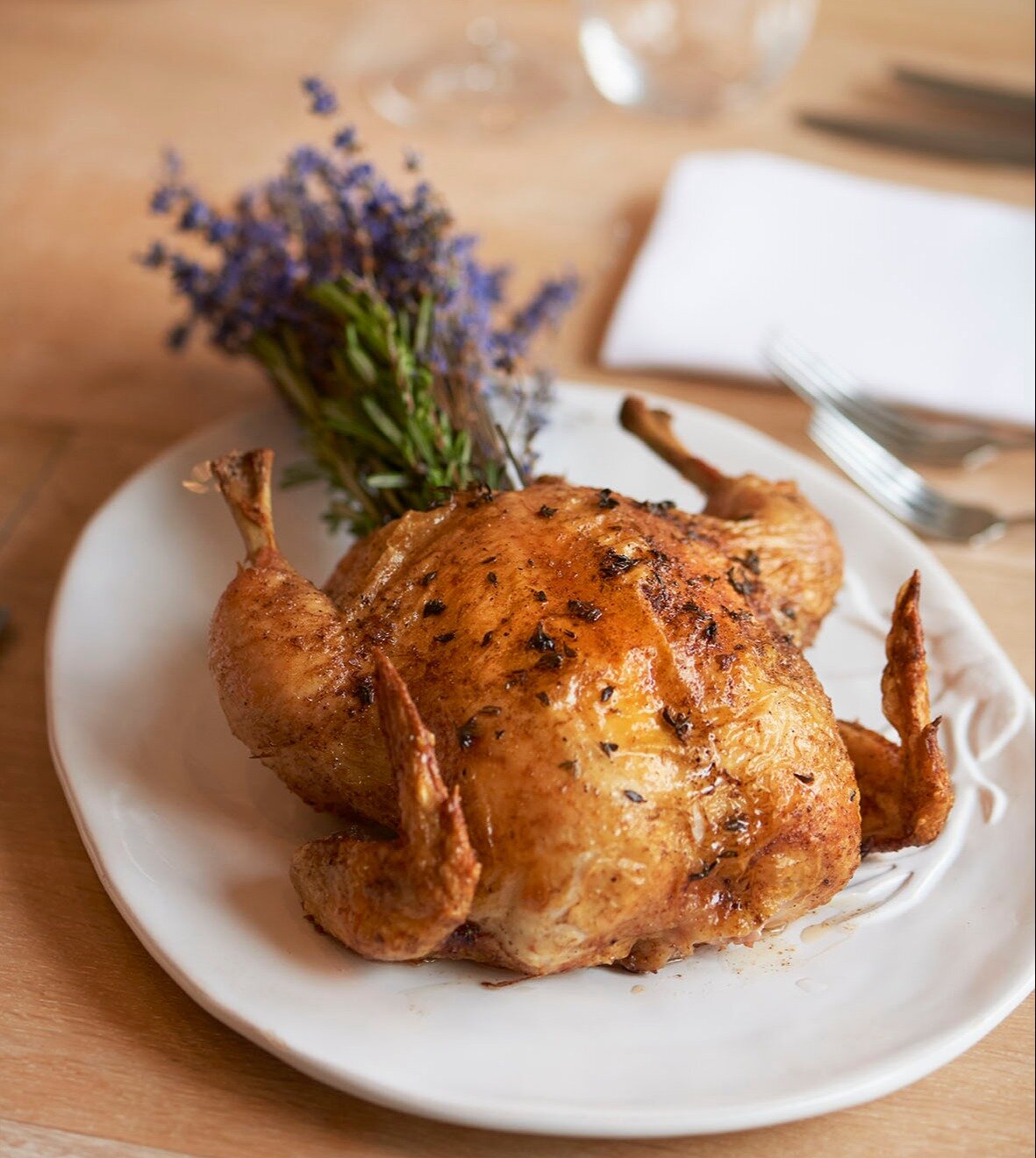
While it’s clear that Howard is closely involved with every aspect of Church Road’s launch, it’s also true that, over recent years, he has amassed a portfolio of restaurants alongside his projects with Mascarenhas that he is either directly involved in or has invested in, including Lorne, Perilla, Gezellig and the Ledbury in London and Union in the Rhône-Alpes (Howard is a keen skier and has a house in the region). That raises the question of how much time he will be able to give Church Road in the long term.
“I will stay very involved with menus until we’ve found our way, and then, I hope, let the fuck go and let the ship sail. I’ll obviously stay close to the business to knock ideas around and offer experience, but it’s really Sam and Alan’s gig. That’s the plan,” says Howard. “What I’ve discovered is that I either like to be in the kitchen cooking, sat on a beach or skiing. I don’t want to be a restaurateur going from site to site all week. It’s about backing and launching and then hopefully letting go as much as possible. That’s how I like it.”
Howard appears to have the Midas touch when it comes to restaurants, with each new opening heralded by critical acclaim and rave reviews. But the 53-year-old chef says he doesn’t have any plans to increase his portfolio further at the moment. “They do all take some time and some headspace and I feel that’s probably enough. I do give time to Union – that actually takes proper headspace and commitment – Elystan Street is superprecious and I want to stay there and there is only so much time. The problem is that great opportunitues come along every now and then and I think, ‘I’m not saying never’, but I think the plate’s full.”
Youth and experience
As well as being at the helm of his flagship London restaurant Elystan Street in Chelsea Green, Howard is a partner of six other restaurants in the capital: the Ledbury, Kitchen W8, Church Road, Gezellig, Perilla and Lorne, as well as Union in the French Alps.
He says his relationship varies with each restaurant; for example, he is ‘hands-off’ at Gezellig, but more involved at Kitchen W8. However, they are primarily independent businesses that have come about from “having somebody great working with you”. Brett Graham (the Ledbury), Peter Hall and Katie Exton (Lorne) and Ben Marks (Perilla) all worked with Howard at the Square, before its sale to Marlon Abela Restaurant Corporation.
“Ben’s cooking is very different from anything I’ve done. I think he’s a phenomenal cook, and I never had any intention of being involved with the day-to-day running,” says Howard.
“I’ve realised that I’m an old-school operator. If you want to have something that’s relevant in Newington Green, it’s best not to get involved with the detail and the feel of it and the creativity of it, because the youthfulness of Ben and his business partner Matt Emmerson is what makes its heart beat. But, they’re young, with limited experience, and having an experienced perspective really helps when it comes to making decisions about the direction of the business.
“We have quite disciplined monthly meetings where I think the experience of the investors plays quite a big part in the evolution of the restaurant. Do we need to change the menu? Do we need to change the format? Or the pricing? What about the wine list? It’s about making sure you don’t alienate people by doing anything that’s either too edgy with the food, or just have a list of wines that are all orange and cloudy.
“It’s bringing a grounded perspective to ensure they’re not being too youthfulminded about it. I started out at 23 at the Square and made all those mistakes and had my business partner Nigel Platts-Martin in that role.”
From the à la carte menu
Starters
- Sweetcorn and clam chowder with a clam and chorizo crumpet £12
- Warm salad of wood pigeon with root vegetables, scorched onion and blackberries £13
- Wilted late summer greens with a cashew cream and a soft herb dressing £11
- Hand cut strozzapreti with crumbled sausage, butternut, chilli and Parmesan £12
Main courses
- Double-baked Cheddar soufflé with leeks and mushrooms £18
- Chargrilled monkfish tail with roasted late summer tomatoes and pesto £29
- Roast grouse with roasted pear, elderberries, hasselback potatoes and gravy £35
- Tamworth pork chop with stir-fried cabbage and sweet and sour plums £20
Desserts
- Chocolate cake with whipped cream £8
- Port-roasted figs with baklava and fig leaf ice-cream £9
- Brown butter biscuit with salted caramel, roasted nuts, malt ice-cream and lime £9


